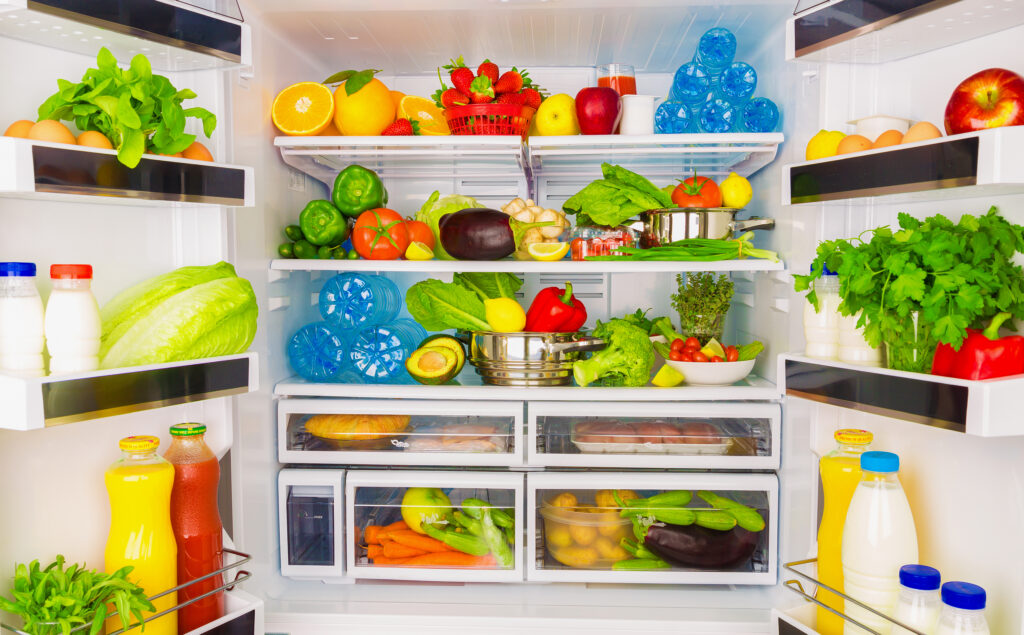Rotting food waste can often be a key contributing factor to a smelly bin in summer, which is why we are exploring the subject of food waste, the often forgotten form of waste we don’t always put a lot of thought into. A WRAP study saw in 2019 the UK produced around 9.5 million tonnes of food waste, from a variety of sectors including retail, hospitality, food service – but possibly one of the most shocking statistics is that the biggest food waste contributor is households who produce 6.6 million tonnes of this – that is 70%.
Why is food waste a problem?
When we do not correctly dispose of our food waste, and utilise food waste recycling, we will place our unwanted food items into the general waste. From here they will be sent to landfills. Due to the amount of waste in landfills and its compact environment, food waste will find it harder to break down. When it does begin to break down and decompose, it releases large levels of harmful greenhouse gases, such as methane and CO2, alongside the water, soil and other wasted resources used to help it decompose are all contributing to climate change.

Why is food wasted?
There is a number of different reasons food turns to waste in a household environment, for example:
- Excessive cooking leads to leftovers, often this waste is disposed of almost immediately after cooking.
- Over purchasing could include buying food you already have at home and therefore having too much, or buying unwanted items when they seem desirable in the shop.
- Poor storage – this could lead to delicate foods, such as fruits becoming bruised which often will deem them ‘inedible’.
But one of the main reasons that food turns to waste is that it has either lost its freshness or expired. All food, particularly fresh foods has a shelf life, and after a certain point will no longer be fit for consumption. Whilst expiry dates are just recommended dates of consumption, they are a good indicator of food’s life span – however, there are a few ways this can be extended, to help prevent food waste.
Keep it fresh!
Food packaging – whilst there are many articles and media outlets out there that are against food packaging, the reality is it has excellent environmental qualities. Plastic packaging can extend the shelf life of food for up to 26 days! Not only is it extending the life span of the goods, it is also keeping it fresh and hygienic and it lessens the chances of contamination.
Smart storage – understanding the best storage methods for your type of food will be key to keeping it fresh. Typically cooler environments, out of direct sunlight and heat is good practice for all foods, but in particular for fresh foods like dairy products, fruit, vegetables, and meats.
Keep it cool – make sure your fridge is at the correct temperature. Too high and your food will quickly expire, too low and your fridge will begin to act like a freezer! The best temperature for a standard UK fridge is between 1 and 5 degrees Celcius – this will vary in hotter and colder climates, so make sure your fridge is set for your season.
Smart cooking – Food planning is a brilliant way to reduce food waste, but you don’t need to go to the extent of planning every meal to help prevent food waste. Instead, some simple planning and knowledge of your food will help ensure you throw less food away. Always try to use any food which has a shorter expiry date first, leaving your freshest foods until last. This way you won’t be leaving food until they are rotten and no longer fit for consumption – which will of course lead to waste.
Also try to use all types of foods, even if you change the purpose for which they were purchased. For fruit and vegetables which are about to expire – make them into soups and smoothies.
Utilize your freezer – Freezing your food down is a great way to instill its freshness. For any food that will lose its freshness or ‘go off’ before you have time to consume it, try to freeze it down. The food will remain fresh in the frozen condition for several months, giving you ample time to then defrost and cook when you need it.
Two of the most wasted food from households are the staples – bread and milk, both of these items are freezable, so they should never go to waste.
Simples steps can help keep your food fresher for longer, expanding not only its lifespan but its quality – and helping to reduce levels of food waste in your household. Keep it fresh to help the planet.